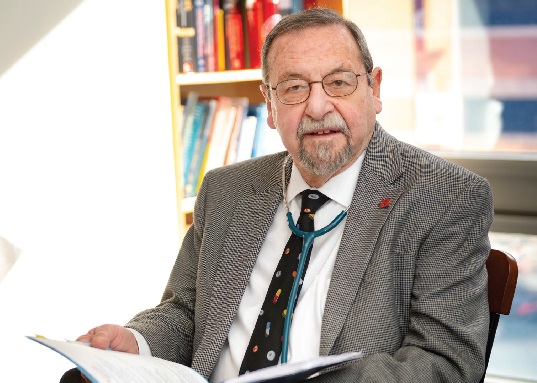How a Multidisciplinary Approach to Treatment Benefits Young Patients
Q&A: Ask the Doctor
More than 30,000 people in the U.S. have cystic fibrosis (CF), in which mucus clogs the airways, leading to persistent lung infections and difficulty breathing. At Robert Wood Johnson University Hospital (RWJUH) and Rutgers Robert Wood Johnson Medical School, the Cystic Fibrosis Center provides expert care for children with CF.
Thomas Scanlin, MD, Director of the CF Center, Professor of Pediatrics and Chief of the Division of Pulmonary Medicine at Rutgers Robert Wood Johnson Medical School, explains how the Center helps to improve patients’ quality of life.
What is the Cystic Fibrosis Center’s approach to patient care?
At the Center, a multidisciplinary team cares for patients. It’s composed of physicians who specialize in CF and pulmonary medicine, nurse practitioners, respiratory therapists, social workers, psychologists, physical therapists and registered dietitians. Our social workers perform a screening for depression and anxiety, which tends to be higher in people with chronic disease. A physical therapist assesses patients’ fitness levels and helps them achieve a healthy body mass index (an indicator of body fat). In addition, the Center works closely with patients’ families to fit cystic fibrosis care into their busy schedules.
What makes the Center unique?
The Center is ranked among the top 10 in the nation for helping patients maintain their nutritional and pulmonary function. We’re focused on achieving the best outcomes for our patients. That means we don’t accept a drop in lung function without doing something about it. We hospitalize patients and perform aggressive chest physical therapy when necessary.
Are there any new treatments?
In 1989, a gene responsible for cystic fibrosis was identified, and we’ve been trying to find a drug that would target it. In October 2019, a medication called Trikafta was approved by the U.S. Food and Drug Administration for patients who are 12 and older. It helps to improve patients’ lung function dramatically. Patients can breathe more easily when they wake up, and it’s easier for them to clear mucus from their lungs. Their quality of life is much better. We’re currently studying the drug to monitor liver function for any long-term problems. Ultimately, we hope to be able to use it to prevent symptoms from developing in babies who test positive for CF during routine newborn screening.
To learn more about the Cystic Fibrosis Center, visit www.rwjbh.org/bmschcfcenter.
